Has there ever been a NASCAR race without a crash?
Crashes have been the part and parcel of NASCAR and an average of six crashes occur at every race.
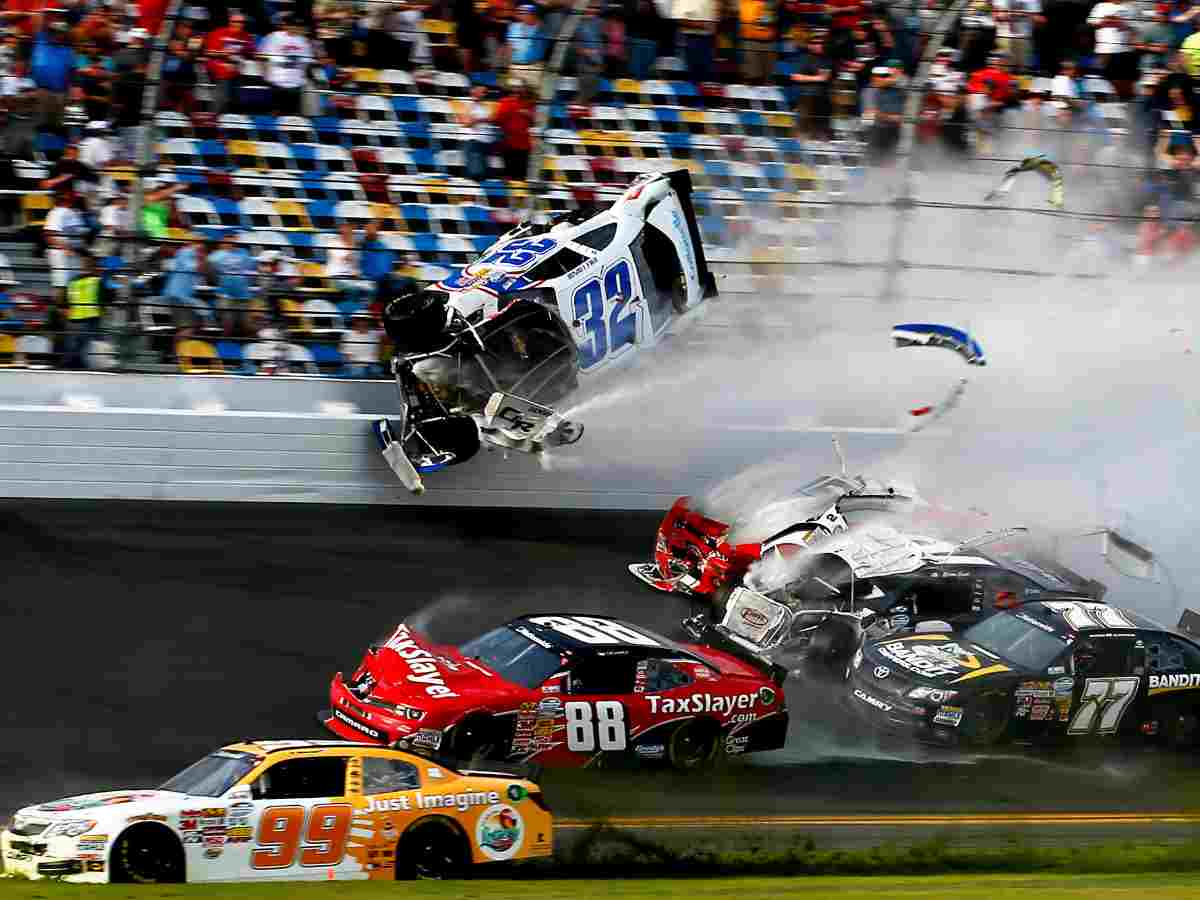
A NASCAR 'Big-One" (Credits: The New York Times)
Crashing has long been a part of the fascination of NASCAR in its high-speed domain. Heart-pounding action, screaming tires, and crumpled metal provide an adrenaline-fueled spectacle for fans. It is not because they want the drivers to be severely wounded; rather, they want to see an unexpected race.
Since 2001, the NASCAR Cup Series has seen an average of 220 incidents yearly, equating to six wrecks every race. It’s a staple of the system, a mesmerizing dance with fate embedded in the fabric of NASCAR’s history.
Remarkably, amidst the constant clamor of crashes, NASCAR has experienced an incredible safety record. Since the tragic loss of Dale Earnhardt Sr. in 2001, there have been no driver fatalities in the Cup Series. Delve into the crash-free races, where drivers showcase their skill, finesse, and sheer determination to conquer the track without succumbing to the crashes.
Discover: What is the difference between Formula 1 and NASCAR?
Here is a list of NASCAR races without crashes
1. 1959 Daytona 500
The first 500-mile NASCAR International Sweepstakes, the Daytona 500, was held in 1959 at the newly completed Daytona International Speedway in Daytona Beach, Florida. It was the second race of the season for the NASCAR Grand National Series in 1959. The 2.5-mile four-turn superspeedway witnessed fierce competition. Cotton Owens posted the fastest qualifying lap, while Bob Welborn and Shorty Rollins won their respective qualifying races.
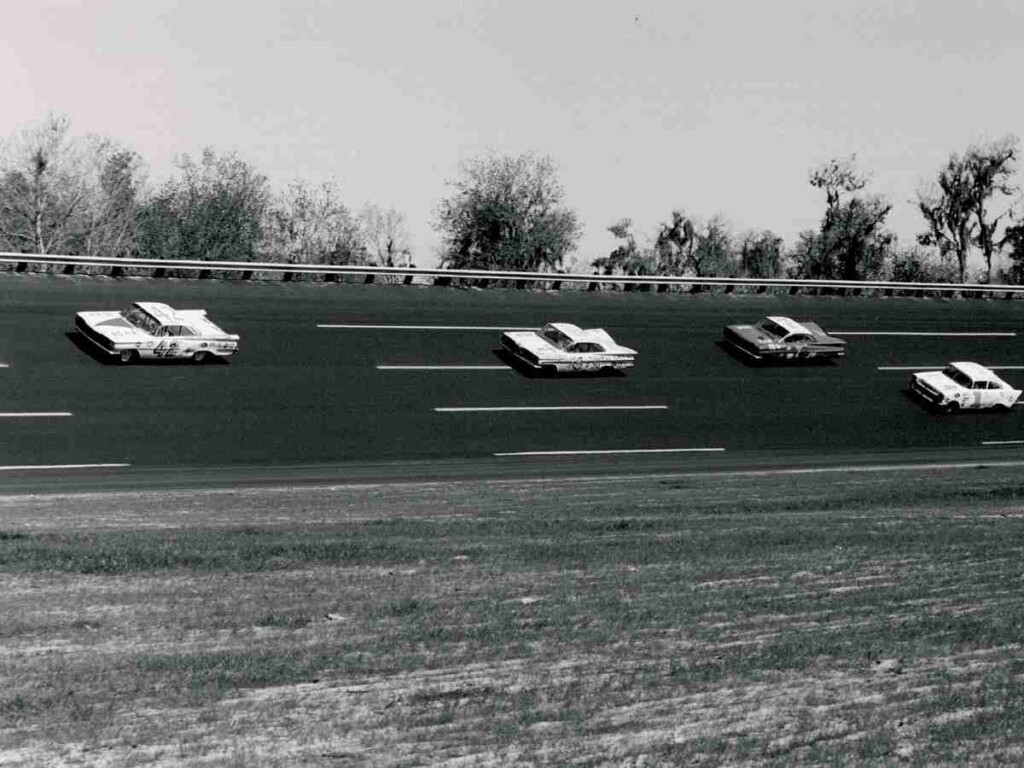
The absence of caution periods distinguished this race, making it a rare “perfect game” in NASCAR history and the first time it had occurred. Throughout the race, drivers like Johnny Beauchamp, Jack Smith, and Lee Petty contended for the lead. Petty and Beauchamp battled in a spectacular race in the last laps, finishing in a picture finish at the checkered flag.
The finale generated debate, with Beauchamp named the unofficial winner at first. Three days later, following a thorough investigation, NASCAR founder Bill France Sr., named Lee Petty the official winner. This contentious finale drew major attention to NASCAR and the Daytona 500, adding to its long significance as one of the most prestigious races in motorsports.
2. 1997 Winston 500 – Talladega
The 1997 Winston 500 at Talladega Superspeedway defied the title of the ‘most crash-prone by becoming only the second race in history without a single crash. The high-octane event unfolded with heart-pounding intensity as drivers pushed their limits on the notorious track. In a nail-biting finish, Mark Martin triumphed by a razor-thin margin of 0.150 seconds over Dale Earnhardt, solidifying his status as a formidable competitor.
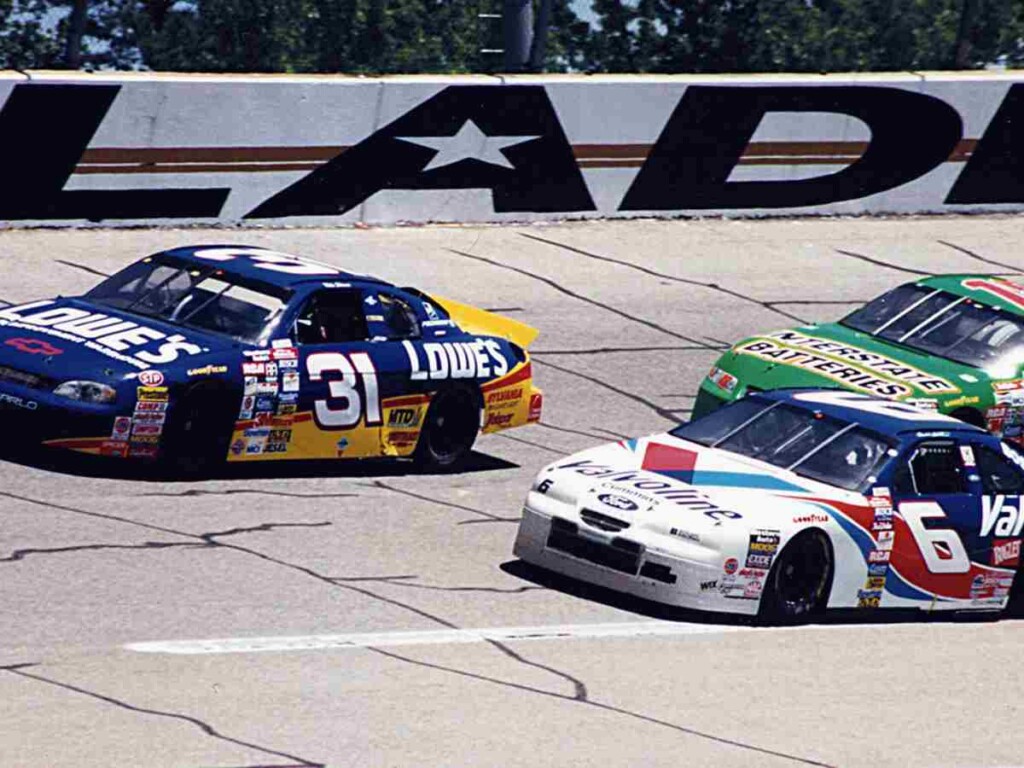
The race showcased thrilling dynamics with an impressive 26 lead changes, thanks to the strategic employment of the aero package. Bobby Hillin‘s remarkable qualifying performance landed him a commendable 20th place. However, Geoffrey Bodine encountered engine troubles, relegating him to the last spot. Meanwhile, John Andretti showcased his prowess by securing a top-five position while piloting Cale Yarborough‘s car.
This historic race, held under NASCAR’s restrictor plate regulations, marked the end of an era for Harry Ranier‘s race team. As the checkered flag waved, Martin’s record-setting speed remained unmatched, solidifying this crash-free event as a testament to the unpredictable nature of racing at Talladega.
3. 2001 Talladega 500
The 2001 Talladega 500, a NASCAR race in Alabama, defied expectations as the third crash-free event in history. Bobby Hamilton claimed victory, triumphing over Tony Stewart by two-tenths of a second. The race featured 43 American-born drivers, with a total prize purse of $3,233,740 and the winner receiving $173,855.
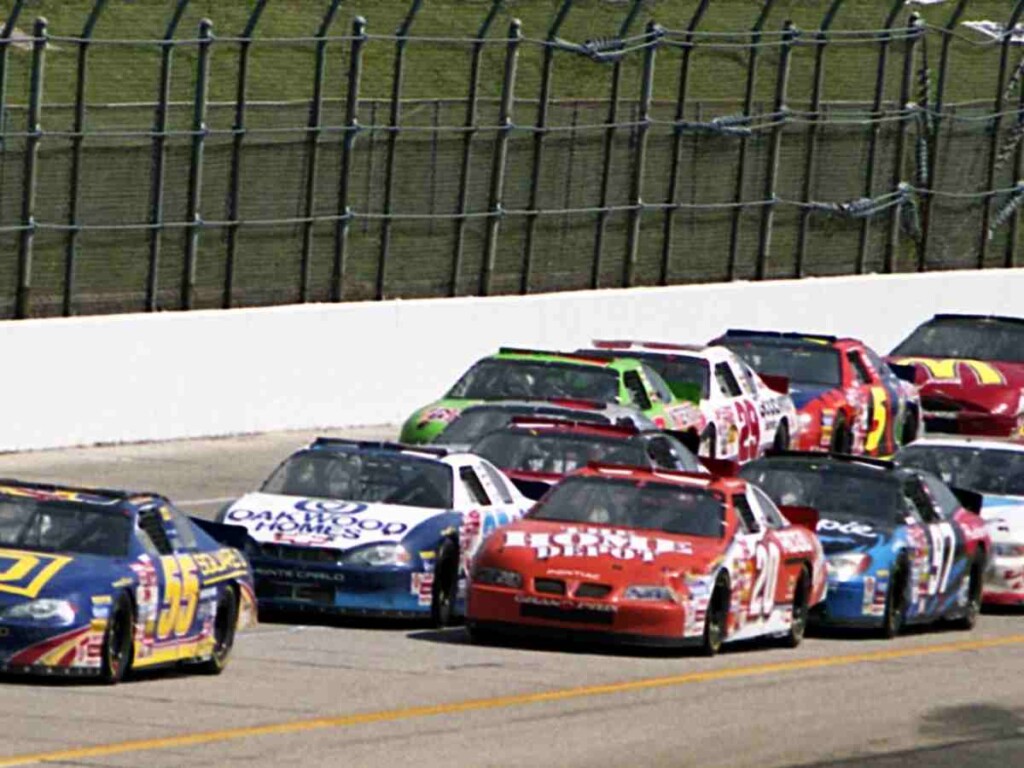
Stacy Compton started on the pole but finished last due to engine failure. Despite the lack of major crashes, the race remained exhilarating, with lead changes and various drivers leading multiple laps. Sterling Marlin displayed a strong performance, leading for 51 laps but ended up in 23rd place.
Lasting almost three hours, the race proceeded without any caution periods since 1999. Bobby Hamilton’s win held added significance as his final triumph before his passing in 2007 from head and neck cancer. The Talladega 500 left an enduring mark as a memorable and fiercely competitive event.
4. 2012 Auto Club 400 – Fontana
The 2012 Auto Club 400 at Fontana, California, was an unforgettable NASCAR Sprint Cup Series race, despite being shortened to 129 laps due to rainfall. Tony Stewart from Stewart-Haas Racing emerged as the winner, displaying his mastery of the challenging 2-mile superspeedway and outmaneuvering his rivals, including Kyle Busch and Dale Earnhardt Jr.
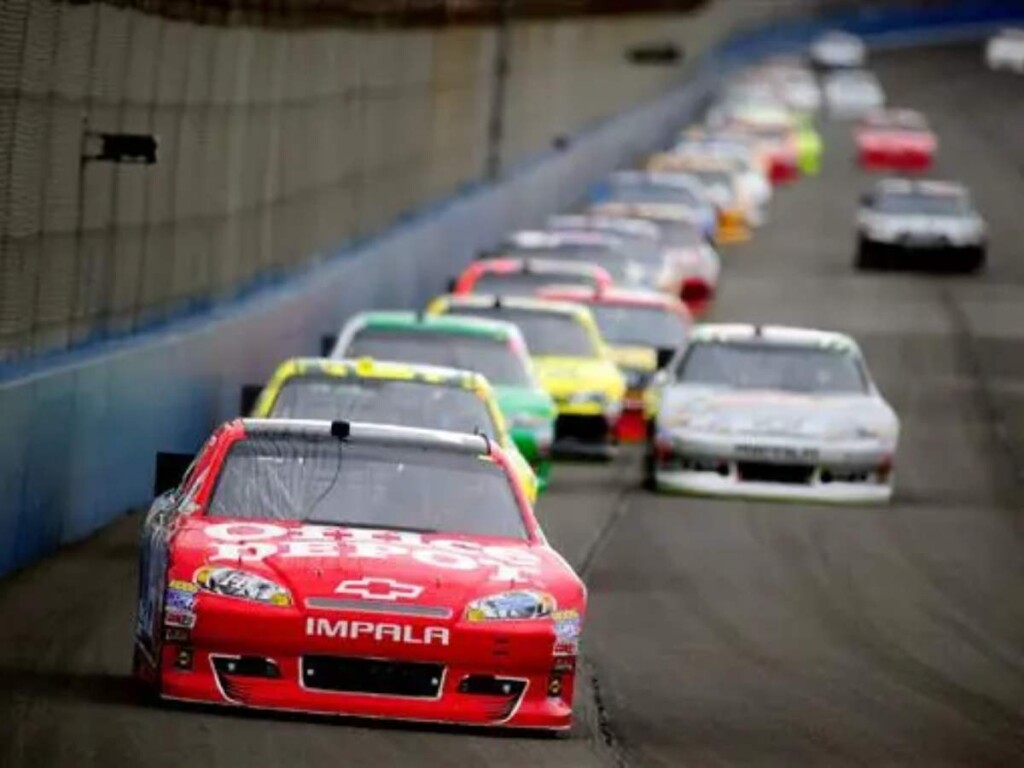
The race was heart-pounding, with Denny Hamlin blazing to the pole position and Stewart deftly navigating pit stops. The race was eventually red-flagged due to heavy rain, but Stewart’s strategic decision to avoid a pit stop paid off, and he was crowned the victorious hero.
The top ten finishers, including Stewart, Busch, Earnhardt Jr., and others, showcased their tenacity and skill in the face of Mother Nature’s intervention. This race is special in NASCAR history, as it was one of the only five races to have no crashes. The Auto Club Speedway was the perfect theatre for this high-speed spectacle.
5. 2019 Pennzoil 400 – Las Vegas Motor Speedway
The last time a NASCAR race went through without a single collision was at the Penzoil 400 in 2019. A violent clash took place at the Las Vegas Motor Speedway. Joey Logano‘s racing prowess won him his 22nd Monster Energy NASCAR Cup Series victory, leaving his competition in the dust.
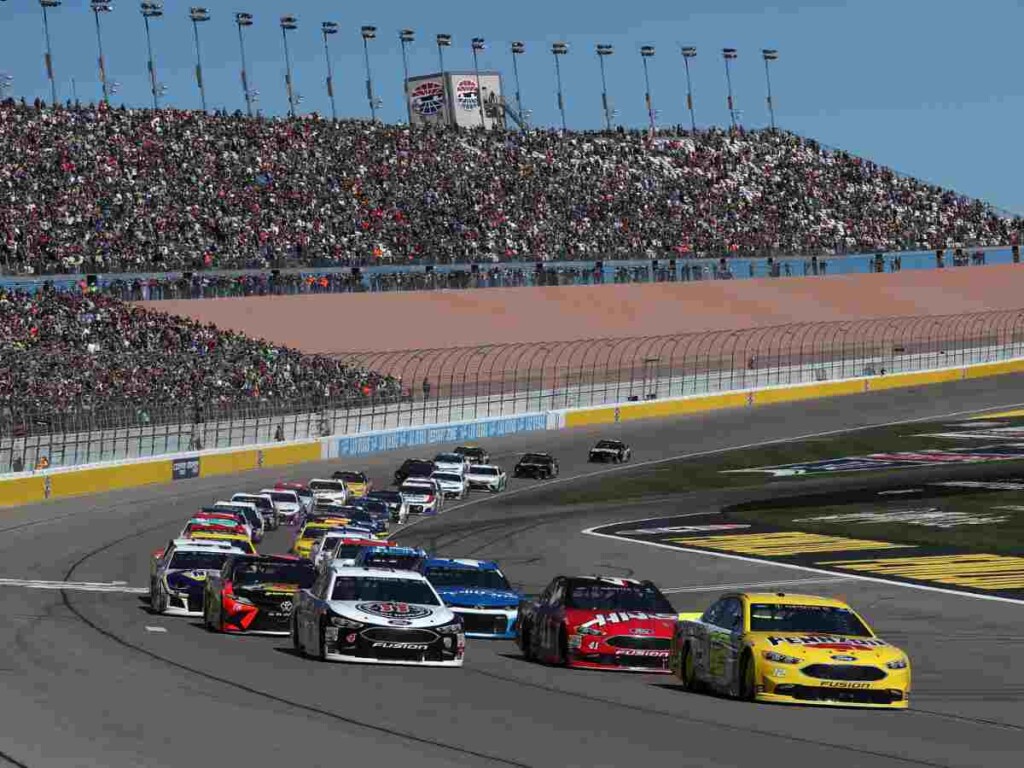
Brad Keselowski finished second, with Kyle Busch, Kevin Harvick, and Kurt Busch rounding out the top five. The race was divided into three thrilling stages, with Harvick winning Stage 1 but Joey Logano demonstrating his power in Stage 2 and eventually taking the lead.
While individual occurrences fade from memory, the ethos of the race lives on as a monument to the unequaled spirit of rivalry that electrifies the Las Vegas Motor Speedway. The 2019 Pennzoil 400, presented by Jiffy Lube, is a racing crown gem and a treasured moment for drivers and spectators alike.
Honorable mention
2002 EA Sports 500 – Talladega
In the 2002 EA Sports 500 at Talladega Superspeedway, Dale Earnhardt Jr. achieved a remarkable back-to-back victory, making it the third NASCAR race without any crashes. Jimmie Johnson started from the pole position, and former NFL quarterback Ken Stabler served as the grand marshal. Safety changes were introduced, but despite reduced fuel cell sizes, Dale Jr. showcased his mastery, securing a historic third consecutive Talladega win.
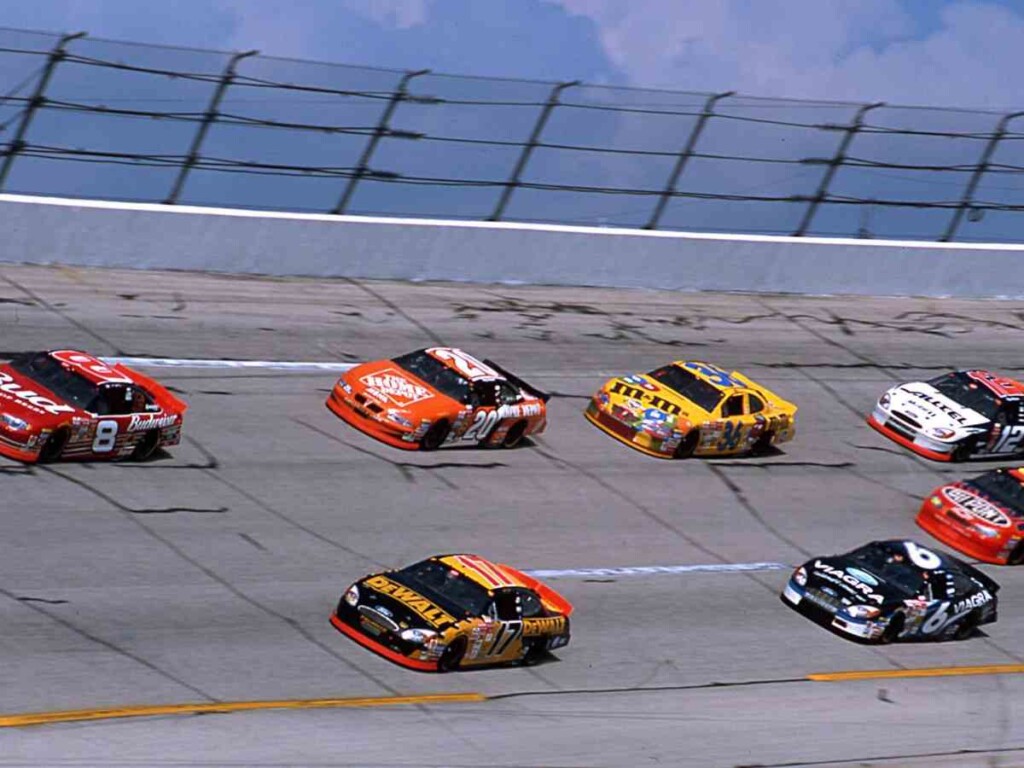
The race didn’t make it to the list of crash-free NASCAR races due to small incidental incident at the start, where Mark Martin locked up and crashed into the back of pole man Johnson during the warm up lap that didn’t result in major crashes. But still, it is classified as an entirely caution-free race.
In case you missed it:

